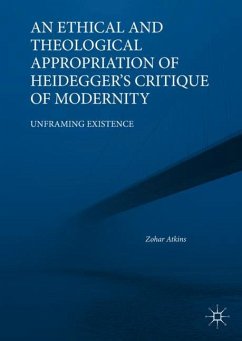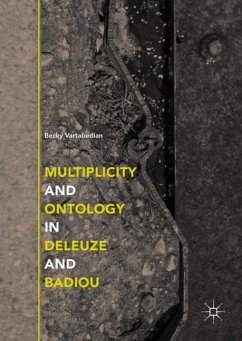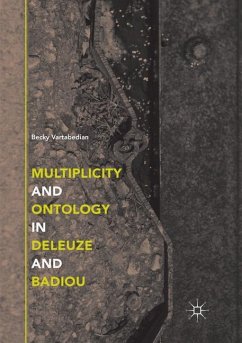
The Reception of Paul the Apostle in the Works of Slavoj ¿i¿ek
Versandkostenfrei!
Versandfertig in 6-10 Tagen
57,99 €
inkl. MwSt.
Weitere Ausgaben:

PAYBACK Punkte
29 °P sammeln!
This is the first book devoted entirely to exploring Zizek's peculiar kind of Paulinism. It seeks to provide a full map of the Marxist philosopher's interpretations of Paul and critically engage with it. As one of several radical leftists of European critical thought, Zizek embraces the legacy of an ancient apostle in fascinating ways. This work considers Zizek's philosophical and political readings of Paul through the lens of reception history, and argues that through this recent philosophical turn to Paul, notions of the historical and philosophical are reproduced and negotiated anew.
This is the first book devoted entirely to exploring Zizek's peculiar kind of Paulinism. It seeks to provide a full map of the Marxist philosopher's interpretations of Paul and critically engage with it. As one of several radical leftists of European critical thought, Zizek embraces the legacy of an ancient apostle in fascinating ways. This work considers Zizek's philosophical and political readings of Paul through the lens of reception history, and argues that through this recent philosophical turn to Paul, notions of the historical and philosophical are reproduced and negotiated anew.














